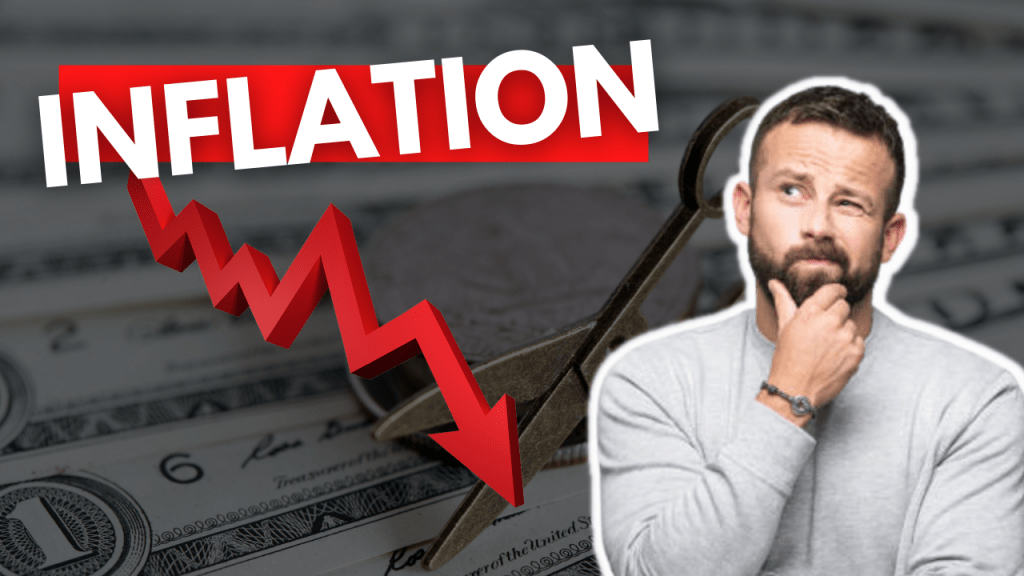
Inflation Explained
Inflation is one of the most important financial terms you’ll come across, but what does it mean? This guide to inflation explains everything you need to know about this important economic concept.
Learn how this happens, why it matters, and how you can make sense of this complex subject in order to live your best financial life.
Let’s breakout out the complex inflation topic into 5 easy topics,
- What it mean
- The Factors Influencing
- How it measured?
- How Does it Affect Your Life?
- Why Should I Worry About it?
What inflation mean
The term inflation refers to a general rise in prices in an economy.
It happens when more money is available or when more goods are being produced. When there’s too much money chasing too few goods, the cost of goods and services tends to go up.
If inflation rises too high, it can pose a threat to economic growth by making people hold onto their money rather than spend it, or encouraging them to spend it faster before prices rise even higher.
The best way for policymakers to fight again this is through monetary policy, adjusting interest rates (among other things) so that they match demand with supply.
The Factors Influencing Inflation
Every economy experiences some degree of inflation on a regular basis, which means that every economy also experiences some amount of devaluation in money.
The factors influencing inflation are numerous, but they boil down to demand and supply. Prices rise when there’s more demand for something than there is supply. And prices fall when there’s more supply than demand.
Money works much like any other good. If there’s a deficit in its production, it becomes devalued because it takes more money to purchase something than it did before.
How inflation is measured
In general, inflation means that prices are increasing. It’s a subtle difference, but an important one.
While rising prices can be caused by other forces such as an increase in demand inflation specifically refers to an increase in prices that isn’t due to any external factors.
When we say about it, we’re referring to pure price increases. When we say rising prices, it could be because of other factors such as more competition or labor shortages.
How Does Inflation Affect Your Life?
Inflation impacts our lives in ways most of us don’t even realize.
For example, when inflation goes up, your money buys less than it used to. That’s why certain items are on sale they cost more today than they did yesterday. And by tomorrow they will probably be even more expensive.
Basically, you can think of it as a tax on everything you buy. It makes your purchases worth less and less over time.
If you have $10 today, at an annual rate of 10%, that amount would only be worth $9 next year if you couldn’t earn any interest or investment income on that amount.
Why should you worry about Inflation?
There are several reasons to worry about inflation, before you can begin to understand inflation, it’s important to know what causes it.
There are three main forces behind inflation,
- A rising money supply
- Low unemployment
- High corporate profits
When there’s more money floating around in an economy (caused by any of these factors), people will have more cash to spend on goods and services that they want or need.
To meet consumer demand, businesses will raise prices. Because we’re all so used to prices going up over time, we refer to it as inflation.
When prices rise at an accelerated rate over a period of time, that’s called hyperinflation.
( If you wish to Watch a cool video explaining this topic – CLICK HERE )
Author’s disclaimer
On the one hand, rising prices are taking a bigger bite out of families’ wallets than they did in recent years.
On the other hand, price spikes are concentrated in a few items and may prove temporary. Workers, especially low-income ones, have also seen strong wage gains that outpace price increases. So their overall standards of living are still improving.
Rather than worrying about temporary, limited price spikes, policymakers should focus on keeping the labor market recovery on track.
While reducing the costs of important goods and services such as health care and housing that are still unaffordable, even if they are not becoming more costly right now.
